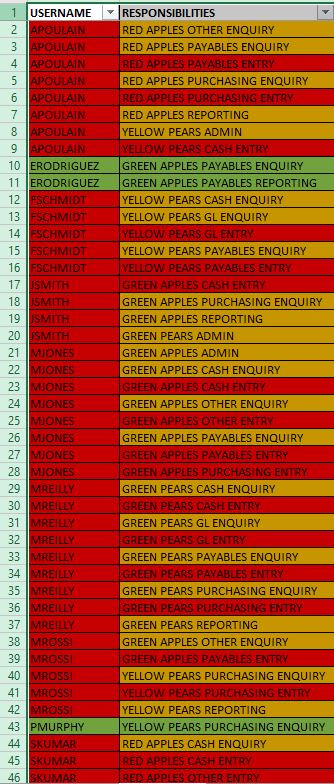Hi all,
I've asked this in the Microsoft Office forum, but since it's data extracted from Oracle I was wondering whether it was possible to obtain what I'm looking for with sql (the thinking behind it being that it might be easier to manipulate the data at source). I'm afraid I'm still very much a beginner and out of my depth.
Many thanks.
I've asked this in the Microsoft Office forum, but since it's data extracted from Oracle I was wondering whether it was possible to obtain what I'm looking for with sql (the thinking behind it being that it might be easier to manipulate the data at source). I'm afraid I'm still very much a beginner and out of my depth.
Many thanks.

![[pc2] [pc2] [pc2]](/data/assets/smilies/pc2.gif)
